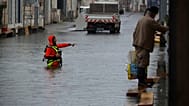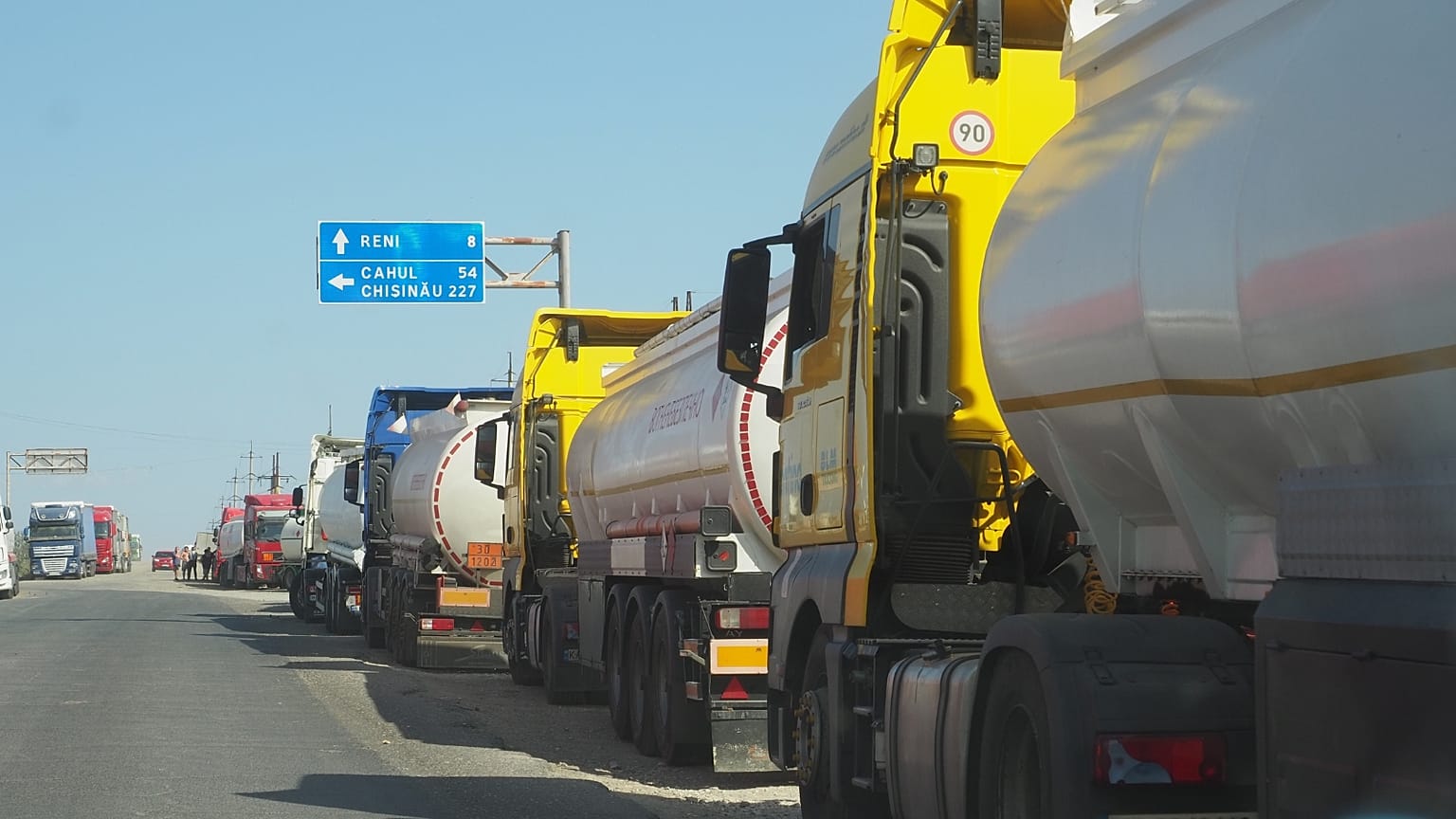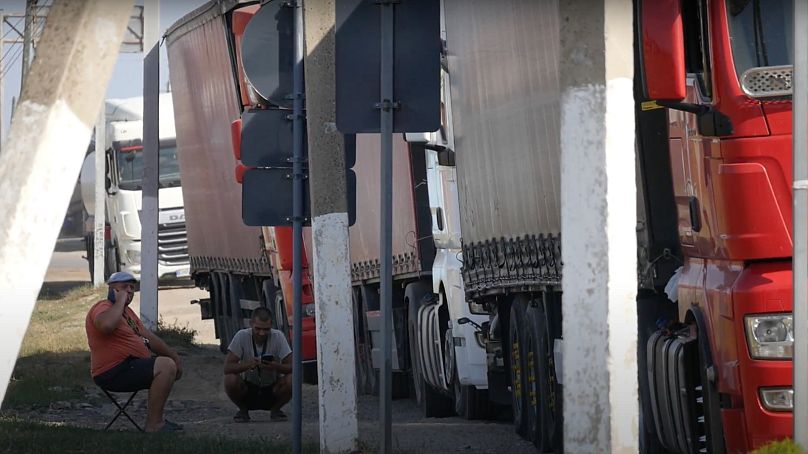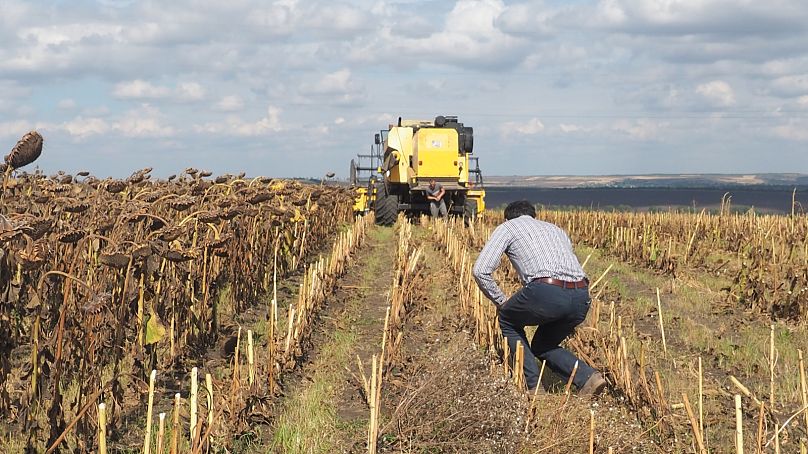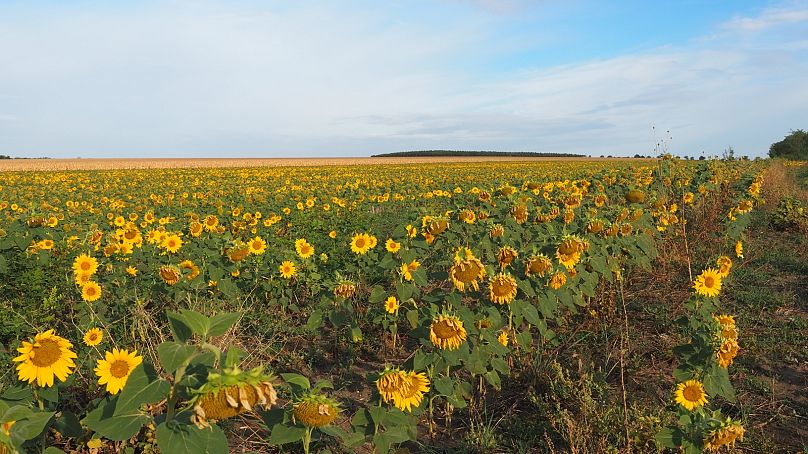Because of Russian bombings, Ukrainians now export their massive grain stocks on land. This has created one of the biggest bottlenecks the Black Sea Region has seen.
Driving through Moldova in late summer, you can see bright yellow sunflower fields all across the country. It's not just a pretty sight, because in this agricultural country, sunflower seeds play a vital economic role.
 ADVERTISEMENT
ADVERTISEMENT
 ADVERTISEMENT
ADVERTISEMENT
Sunflowers make up 25% of all the cropped land in Moldova but it's become increasingly difficult for farmers to export the lucrative sunflower seeds because of bottlenecks caused by the added pressure of Ukrainain truck drivers also trying to export their country's harvests through neighbouring Moldova to ports in Romania.
"We have been waiting here for four days,” said one Ukrainian truck driver.
In that time he has moved just 600 meters with his vehicle full of grain. Around him, hundreds of other Moldovan and Ukrainian drivers are stuck, too.
This is now the daily reality in the southern border of Moldova, at the Giurgiulesti border crossing.
With the ongoing war in Ukraine, it has become one of the chokepoints for food export in the Black Sea region.
The Ukrainians wait in Moldova to cross to Romania. They can queue between five to seven days on average, according to the Moldovan Ministry of Economy. In Romania, the grain is taken to the port of Constanta, and from there, all over the world by cargo ships.
The Romanian customs can't fit all of them in their customs clearance area, so most of the waiting happens in Moldova, a crucial transit point for Ukrainian farm produce.
The drivers are gathered by the road in groups, looking drained. Some sit silently on the grass; some share food and speak quietly. There are no waiting facilities, the drivers said. They use bushes for toilets, and water canisters for showers.
Many had traveled hundreds of kilometres from Ukraine, just to be stuck here.
It's unprecedented for the Giurgiulesti border crossing. In October only, 1307 loaded trucks crossed the Ukrainian-Moldovan border through Reni-Giurgiulesti, said Mailin Aasmäe, EU Border Assistance Mission to Moldova and Ukraine.
And there is no end in sight for the crisis. The average waiting time has almost doubled since September, Aasmäe added, from 137 hours to 269.
A Global Problem
Until this summer, the grain was exported mainly via cargo ships, but Russia ended the Black Sea Grain Initiative and started targeting Ukrainian ships and ports. The sea suddenly became a danger zone.
Despite the risks, a lot of Ukrainian grain is waiting to be exported. This is a global problem. Ukraine feeds much of the developing world through the Black Sea Grain Initiative. Until this summer, Ukrainian ports worked full steam to get food to those in need.
Since July, all the goods have to be transported on land, and Moldova offers one of the first safe ports, GIurgiulesti, for those drivers.
“Nothing dangerous flies above our heads here,” the Ukrainian truck driver said.
“In Ukraine, no matter where we are in Ukraine, there's always a lingering danger on the road.”
Even the Moldovan port employees see the bombs blasting on the Ukrainian side, in the port of Reni, around ten kilometres away, so forming long lines on the Ukrainian side is not safe for the drivers.
“They target areas with a high concentration of mobile phones,” Viorel Garaz, a State Secretary of the Ministry of Economic Development and Digitalization, explained. “So naturally, we let them cross the border to the Moldovan side.”
But the journey for these drivers doesn't end here. They need to drive to Romania, to the port of Constanta where the grain is taken to large ships. Grigore Baltag, an economic analyst at the Moldovan Ministry of Agriculture, explained that over 90% of grain and oilseed transit through Moldova takes place in Giurgiulesti.
But here's the problem, Garaz explained. The Romanian customs clearance only has limited space on their side of the border, so the drivers must wait in Moldova.
Moldovan exports held up by long queues
The crisis also affects Moldovan farmers, the backbone of Moldova's economy. For them, it has become harder to offload grain.
Everyone wants to get their produce out in any way possible, so the Moldovan exporters cannot compete with cheap Ukrainian grain. Since 2022, Moldova's cereal export countries have dropped from 25 to 14.
"The Ukrainians have substantial stockpiles from the 2022 harvest, and they are also in the midst of the 2023 harvest,” a Moldovan farmer Alexei Micu explained in September.
Consequently, the Moldovan market is flooded.
Farming in Moldova is becoming increasingly difficult, but not just here - in the Black Sea region. Micu predicted that many would head toward bankruptcy in the coming years.
In an effort to solve the crisis, the Moldovan government is creating an electronic queue system connected to the Ukrainian and Romanian customs services.
Meanwhile, the drivers in the line, keep calling their relatives, and hear about bombings. So even if they must be stuck at the border for days, they are safe here.

